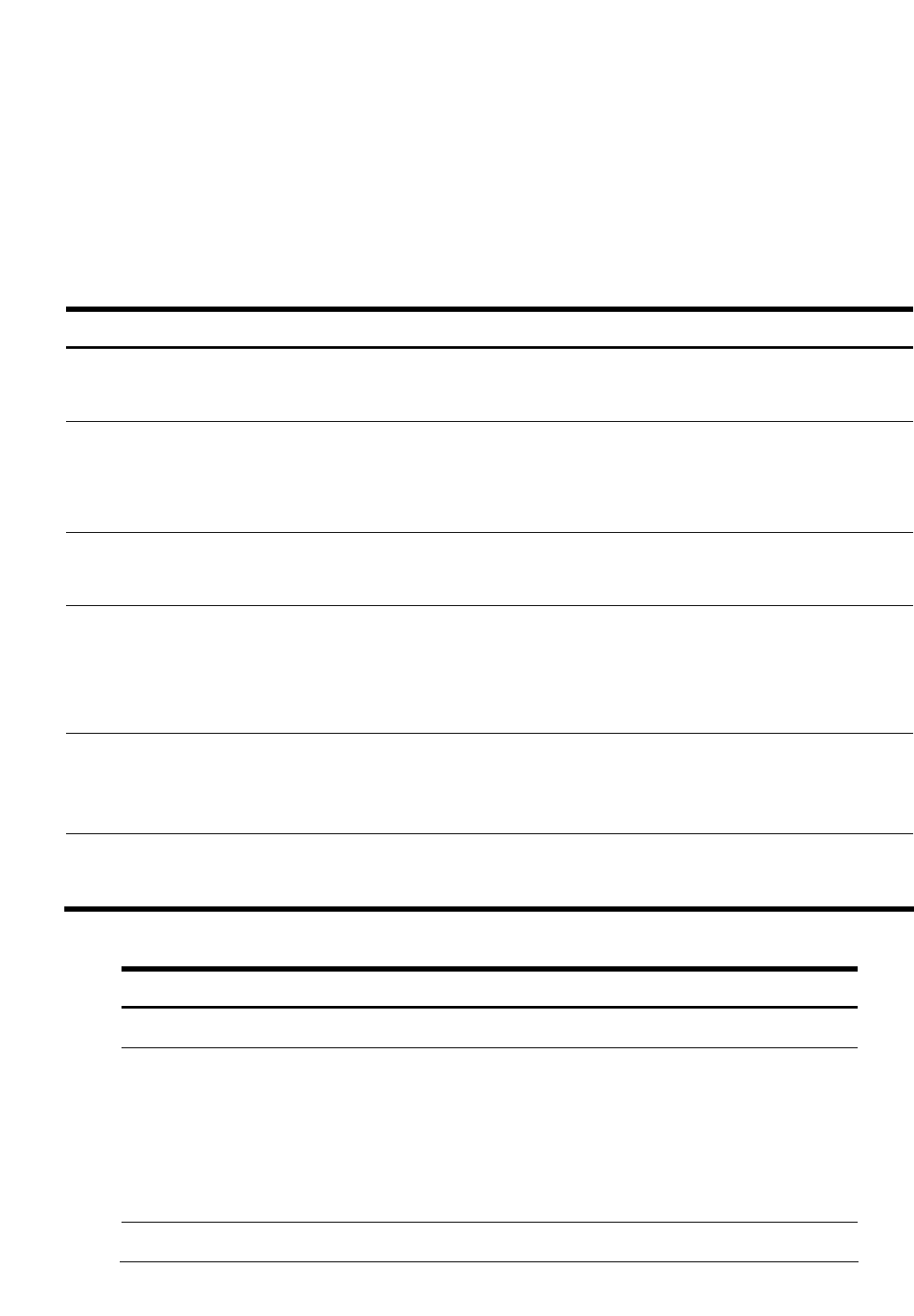
Depreciation
57
Note: pressing < on the last item of a sub-menu returns you to the Year item, not to the top of the sub-menu (see Figure
1). By scrolling through all the items of a sub-menu, you incrementally advance the Year item. This allows you to see the
depreciation schedule for the next year without additional entries.
Brief descriptions of the methods used to calculate depreciation are provided in Table 9-1. Table 9-2 describes the items
found in the depreciation sub-menus. For an example calculating depreciation using the straight-line method, see Table 9-3.
Table 9-1 Depreciation Methods
Depreciation Method Description
Sline
Straight line is a method of calculating depreciation presuming an asset loses a certain
percentage of its value annually at an amount evenly distributed throughout its useful life.
SOYD
Sum-of-the-years' digits is an accelerated depreciation method.
In SOYD, the depreciation in year
Y
is (Life-Y+1)/SOY/100% of the asset, where
SOY
is
the sum-of-the-years for the asset, or, for an asset with a 5-year life, 5+4+3+2+1=15.
DecBal
Declining balance is an accelerated depreciation method that presumes an asset will
lose the majority of its value during the first few years of its useful life.
DBXover
Declining balance crossover is an accelerated depreciation method that presumes an
asset will lose the majority of its value in the first few years of its useful life, but that it will
revert to a consistent depreciation during the latter part of its life, which is then calculated
using the straight line method.
French SL
Straight line French. This method of depreciation is similar to the Straight line method,
except an actual calendar date in the selected format is entered in for
Start
to indicate
when the asset was first placed into service.
Amort F
French amortization. This method is an accelerated depreciation method with a
crossover to the French Straight Line method.
Table 9-2 Depreciation Menu Items
Item Description
Life The expected useful life of the asset in years.
Start
Start
refers to the date or month in which the asset is first placed into
service. Depending on the type of depreciation, this can be the month
(1-12), or, in the case of French Straight-line and Amort F, the actual
date in the selected format. Note: for non-French depreciations, if the
asset were placed into service in the middle of March, for example,
you would enter
3.5
for
Start
.
Cost The depreciable cost of the asset at acquisition.


















